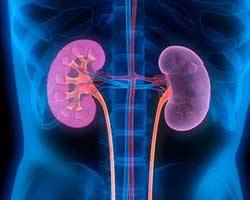Von Hippel-Lindau syndrome is a genetic disorder characterized by formation of cysts and tumors in different parts of the body. The symptoms associated with the disease depends upon the location of tumor. However, gait disturbance, dizziness, weakness of the limbs, deafness, high blood pressure, and vision problems are some common symptoms observed in the patients. The available treatment options for the disease are surgical removal of the tumor, high dose irradiation, and chemotherapies. Von Hippel-Lindau syndrome is mostly found to be associated with pheochromocytoma. The National Eye Institute (NEI), based in the U.S., is in the process of developing a combination therapy of ranibizumab and E10030 for the treatment of von Hippel-Lindau syndrome.
-
The report provides a comprehensive understanding of the pipeline activities covering all drug candidates under various stages of development, with the detailed analysis of pipeline and clinical trials.
-
Pipeline analysis of drugs by phases includes product description and development activities including information about clinical results, designations, collaborations, licensing, grants, technology, and others.
